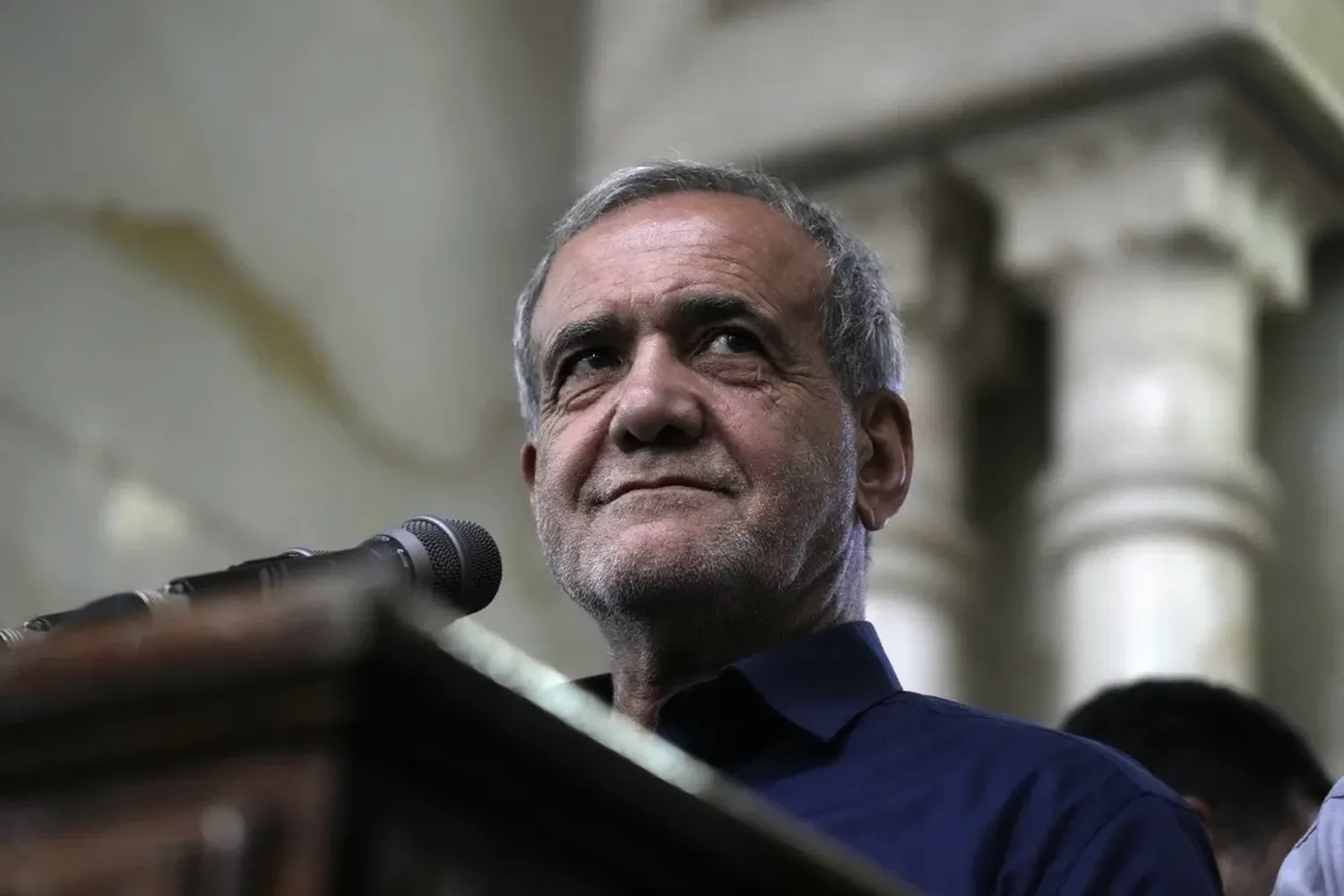Iran presidential election 2024
Reformist Lawmaker Masoud Pezeshkian Wins Iran’s Presidential Vote
The Ministry of Interior confirmed the results early Saturday
In a significant political shift, Masoud Pezeshkian, a reformist lawmaker and cardiac surgeon, has emerged victorious in Iran's presidential runoff election. The election, held on July 5, 2024, saw Pezeshkian secure 16.3 million votes, surpassing his hardline rival Saeed Jalili, who garnered 13.5 million votes. This outcome marks a notable triumph for the reformist camp, which has been marginalized in recent years.
The voter turnout in the runoff election was approximately 50%, a slight increase from the initial round but still low compared to previous presidential elections. The Ministry of Interior confirmed the results early Saturday, with jubilant celebrations erupting across various cities, including Tehran and Pezeshkian's birthplace, Tabriz.
Pezeshkian’s victory follows the tragic death of former President Ebrahim Raisi in a helicopter crash in May, which prompted the snap election. The Guardian Council, responsible for vetting candidates, had narrowed the field to six, including five hardliners and one reformist. After the first round of voting on June 28, Pezeshkian led with 10.4 million votes, followed by Jalili with 9.4 million, necessitating the runoff.
Pezeshkian, 69, has a long history in Iranian politics. He previously served as the Minister of Health and Medical Education from 2001 to 2005 and has been a member of parliament representing Tabriz, Osku, and Azarshahr. Known for his moderate stance, Pezeshkian has advocated for improving international relations and easing social restrictions within Iran.
During his campaign, Pezeshkian emphasized the need for dialogue with Western nations, particularly regarding Iran's nuclear program. He views engagement with the West as a pathway to addressing Iran's economic challenges, which have been exacerbated by sanctions reimposed after the United States withdrew from the 2015 nuclear deal. Pezeshkian's platform also included promises to reduce the presence of morality police in public spaces and to relax the enforcement of Iran's compulsory headscarf law.
Despite these promises, many Iranians remain skeptical about Pezeshkian's ability to enact significant changes independently. The ultimate authority in Iran lies with Supreme Leader Ayatollah Ali Khamenei, who wields substantial influence over state affairs. Political analysts suggest that while Pezeshkian's presidency may signal a shift towards moderation, substantial policy changes are unlikely without the Supreme Leader's approval.
Internationally, Pezeshkian's victory has been met with cautious optimism. Western nations view him as a more amenable interlocutor compared to his hardline predecessor, potentially paving the way for improved dialogue. However, the geopolitical landscape remains complex, with ongoing tensions in the Middle East and uncertainties surrounding Iran's nuclear ambitions.
In his victory speech, Pezeshkian acknowledged the challenges ahead and called for national unity. "We must work together to navigate the difficult path ahead," he said. "Our goal is to build a better future for all Iranians, one that respects our traditions while embracing necessary reforms."
The election outcome also reflects a growing desire for political change among the Iranian populace, despite widespread voter apathy. Over half of eligible voters abstained from the election, reflecting disillusionment with the current regime and doubts about the transformative power of presidential elections.
As Pezeshkian prepares to assume office, his ability to balance reformist aspirations with the realities of Iran's political system will be closely watched. His presidency represents a potential shift in Iran's domestic and foreign policy, but the extent of this shift remains uncertain. For now, Pezeshkian's victory offers a glimmer of hope for those advocating for moderation and engagement in Iran.

